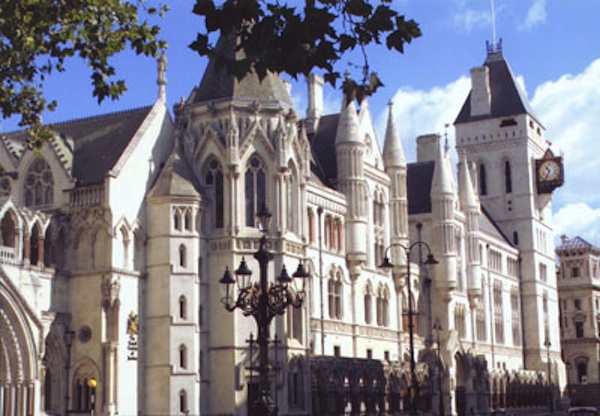How do you avoid having harsh regulation thrust upon you? Well, a good first step is don’t demonstrate complete disrespect for those who might wish to – and even have the power to – bring about that kind of regulation. Two recent events may be about to bring that into stark focus: the behaviour of some elements of the press during the Leveson Inquiry, and in particular to the death of Gary Speed, and the leaking of testimony to the Leveson Inquiry by the blogger Guido Fawkes.
The Leveson Inquiry and the Committee on Privacy and Injunctions
There appears to be a fairly widespread belief that the current system of press regulation, based around the Press Complaints Commission (PCC), is not producing the right sorts of results. The televised appearances of witnesses to the Leveson Inquiry, from celebrities like Hugh Grant, Steve Coogan and Sienna Miller to ‘ordinary’ people like the families of Milly Dowler and Madeleine McCann, seems to have reinforced that view, as we’ve heard story after story of appalling behaviour by the press and those they employ. There are more witnesses to come – and almost certainly more excruciating revelations.
The key question that arises, particularly in the minds of those of us connected to the law, is what the result of the Leveson Inquiry is likely to be. Will Leveson suggest ‘more of the same’ – a continuation, perhaps, of the PCC, with slightly modified terms of reference and a bit more independent oversight? Something a bit stronger – with more powers, or perhaps making different kinds of redress available such as apologies with equal prominence as the original headlines? Is it conceivable that he might suggest new laws with real teeth? This last alternative is something that the press would doubtless like to avoid – but are they doing their best to prevent it? I don’t think so.
At the same time as the Leveson Inquiry, the Joint Select Committee on Privacy and Injunctions has been in session – and whilst the Leveson Inquiry is dealing specifically with the activities of the press, the Committee’s remit is broader, and in particular it has extended its reach to include blogs and bloggers. A question that has arisen already is whether bloggers need regulation – and witnesses appearing before the Committee have included one notable blogger, Paul Staines, better known online as Guido Fawkes.
Staines’ appearance before the committee was somewhat challenging – he seemed to enjoy cocking a snook at the committee. At one point he suggested that ‘privacy was a euphemism for censorship’ – a provocative remark to say the least. He seemed to be almost tempting them into attempting to regulate blogging – believing all the while that since his blog is hosted overseas that he was therefore out of their regulatory reach. His behaviour since has been perhaps even more provocative – over the weekend he published on his blog a document that purported to be the confidential evidence of Alastair Campbell to the Leveson Inquiry. That leak has immediate led Lord Leveson to summon Staines to appear before the Inquiry and offer evidence on oath about it.
The death of Gary Speed
The sudden death of Gary Speed, the former Premier League football player and manager of the Welsh national team, announced on Sunday, sent shockwaves not just through the football world but through the whole country. Speed was enormously respected, and in general the reaction to his death has been one of sadness and appropriate respect. Indeed, in the most part it has been deeply moving. That, however, has not been universally true, and the blanket coverage of the story, though understandable, has at times been pushing the limits of what’s acceptable. Two particular pieces of press activity stood out for me. Almost as soon as the story broke, the Telegraph set up a live blog, while the Daily Mail published long-lens photos of his family home, even giving enough information to allow its location to be immediately identifiable. All of this at a time when the Gary Speed’s family had specifically asked for privacy and time to grieve – and by the look of things they have been given neither.
Respecting the regulators
The actions of Guido Fawkes may well be legal – Staines insists that his source for the document published is legitimate – and the actions of the Telegraph and the Daily Mail almost certainly are. For me, that’s not really the point. The point is one of respect – not just respect of the privacy of those involved (and in particular the family of Gary Speed) but respect of the regulators involved. The actions seem to be calculated to get the regulators’ backs up – and that is unlikely to produce anything positive. In the case of Leveson the likelihood of his producing a strong response is surely increased if he sees that the press can’t even keep their long lenses in their bags for a few weeks – and the MPs and Peers on the Joint Committee can only be encouraged to look for some way to regulate bloggers after the Guido Fawkes leak.
It may be that all this will show is that the Leveson Inquiry is toothless – which may well be what the press already believes – but time will tell, and the worse the press behave, the more likely it is that Leveson will show whatever teeth he has. As far as Guido Fawkes is concerned, the issues are somewhat different – his blog is hosted outside the jurisdiction, so quite what can be done about him is far from clear, but there is a risk that his actions will mean that the Joint Committee feels that ‘something has to be done’. That might have implications for all bloggers – particularly those who don’t have the resources, ability or desire to host their blogs overseas. The Internet may be seen as some kind of ‘wild west’ (a term used by the Committee in their report on the Draft Defamation Bill in October) but that doesn’t mean that attempts aren’t made to regulate it.
All this may be necessary anyway – there is certainly a decent prime facie argument for stronger press regulation, and at least the more serious bloggers might be better off with some kind of oversight – but regulation is rarely done well when it is reactive. All that ‘cocking a snook’ at regulators is likely to produce is bad regulation.





